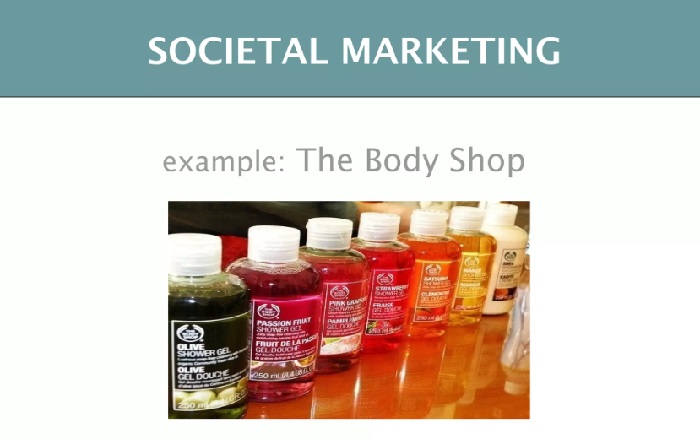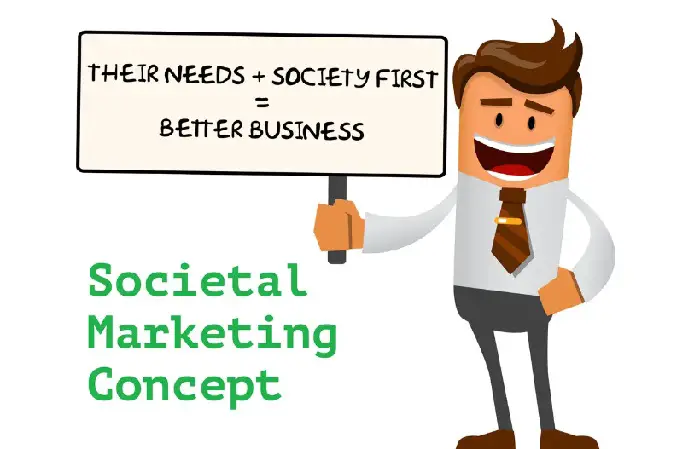Societal marketing is one of organizations and companies’ five marketing concepts or philosophies. It is the only philosophy that holds the company responsible for societal well-being and asks that it be reflected in its products and marketing strategy. So the question asked by many people is, what is societal marketing?
Societal marketing is a marketing approach that goes beyond fulfilling customer needs and wants by considering the broader societal well-being. It involves the integration of social and ethical considerations into marketing strategies and activities, with the aim of promoting long-term benefits for both the company and society as a whole. By adopting societal marketing, companies can build a strong brand reputation, gain competitive advantage, and contribute to a more sustainable business environment.
To properly understand societal marketing, we have to look into its objectives and functionalities, which are discussed below.
What is Societal Marketing – Concept Easily Explained
Societal marketing is a marketing philosophy that has a social dimension to it. It also means marketing with non-economic criteria. Marketing strategies are made with the long-term interests of society in mind. These strategies provide direct benefits to the company and also provide secondary benefits to the community.
As opposed to the selling concept in marketing, societal marketing distinguishes between immediate customer benefit and long-term satisfaction of the customer and society. It is a 3-dimensional concept of marketing—social welfare, personal pleasure, and corporate profit.
The Objective of Societal Marketing
Following are the five objectives of the societal marketing concept:
- To create a positive brand image for the company.
- To make business decisions that are beneficial for both the company and society.
- To carry out its (company’s) social responsibility.
- To develop a personal and long-term relationship with its customer.
- To guide the company towards the path of sustainable growth and development.
Advantages of Societal Marketing Philosophy
The following are the benefits of societal marketing philosophy:
- Builds a caring and nurturing brand image in front of the public.
- It gives a clear edge over competitors.
- Increases consumer base and market share.
- Gives the added benefit of customer retention.
- Sustainable growth of the company over time.
- Builds long-term relationships with customers and the local community.
- Economic planning is more fruitful to society.
- An increase in profits alone doesn’t determine a company’s progress but also has a social impact component.
See Also: What is Cross-Channel Marketing?
Instruments of Societal Marketing
After introducing societal marketing in 1972, Philip Kotler defined four categories of products in terms of immediate satisfaction to long-term benefits. These four categories are as follows:
- Deficient products: These products give neither long-term benefits nor short-term satisfaction—for example, ineffective medicine.
- Pleasing products: These products give a high level of immediate satisfaction but cause harm in the long term—for example, cigarettes and alcohol.
- Salutary products: These products provide low immediate satisfaction but offer long-term benefits to the community—for example, helmet, and medical insurance.
- Desirable products: These products give both immediate satisfaction and long-term benefits—for example, body shop products (because products provide immediate satisfaction, and a percent of the profit goes to charity)
So according to Philip Kotler, eliminating defective products from the market is necessary to benefit society. Pleasing products should undergo modification to incorporate long-term societal benefits. Salutary products should transform to make up for low immediate satisfaction.
According to Kotler, every company should strive to develop desirable products in the societal marketing concept. Because of this, companies will focus on the well-being of the consumer and community instead of selling good or bad products to consumers.
4 Examples of Societal Marketing
Many companies adopt societal marketing due to its positive brand image building. Ethical and socially sound practices have a positive effect on brand value, which ultimately affects sales. Following are some examples of companies using the societal marketing philosophy:
1. The Body Shop
The body shop is a perfect example of a company aware of its societal responsibilities. They are a beauty accessories brand that uses only plant-based material for its various products. They support animal rights and are against animal testing. This reflects in how they manufacture and advertise their products.
 Along with this, they also spread awareness regarding the importance of fundamental human rights. They also make a point to make people aware of the environmental crisis. Besides this, they also have a charity foundation to help progress in human rights, environmental protection, and animal protection. Thus The Body Shop follows a marketing model based on the philosophy of societal marketing.
Along with this, they also spread awareness regarding the importance of fundamental human rights. They also make a point to make people aware of the environmental crisis. Besides this, they also have a charity foundation to help progress in human rights, environmental protection, and animal protection. Thus The Body Shop follows a marketing model based on the philosophy of societal marketing.
2. AVON
It is a beauty and cosmetics company spreading breast cancer awareness. They started selling pink ribbons in alliance with the National Alliance of Breast Cancer Foundation (NABCO).
The response to their awareness drive was such widespread that these pink ribbons became the international symbol for breast cancer. The profit obtained by selling these ribbons was donated to NABCO. Hence the company provides a desirable product with instant satisfaction and long-term, widespread benefits to society.
3. Coca-Cola
Coca-Cola is a company that makes non-alcoholic soft drinks, concentrates, and syrups. Their products come under the pleasing category as they give instant satisfaction to the consumer, but they could be healthier in the long run. To make the brand socially impactful, they released an ad in which people of multiple ethnicities sang the song ‘America is Beautiful.’ Although the product isn’t healthy in the long run, Coca-Cola adds a positive social impact to the brand value by creating unity in the community.
4. Kia
Kia Motors is a car manufacturer. The car comes under the pleasing product category. It provides instant consumer satisfaction but creates environmental problems for society in the long run. So to make a positive social impact, Kia published an ad in which an environmentalist is hell-bent on saving a tree, a rhinoceros, and a whale. This will spread awareness regarding the climate crisis and animal rights and have long-term societal benefits.
Disadvantages of Societal Marketing
One major disadvantage is answering the question of long-term public benefit. These questions also include who and what decides societal benefit. It is a topic of argument that a marketer should not determine what benefits society, which the public and politicians should decide.
Another disadvantage of this concept is its underdeveloped literature. It is argued by many that social marketing is not inherently a different concept but an extension of the marketing concept.
See Also: What is Grassroot Marketing? Biggest Examples
FAQs
What is Social Marketing?
A: Social marketing is the use and adaptation of marketing technologies to influence the behavior of the public. This behavior change is warranted for individual and societal welfare.
Is social marketing different from societal marketing?
A: Yes. Social marketing and societal marketing are different concepts. Social marketing attempts to influence the behavior of the target audience for the welfare of society. In contrast, societal marketing doesn't necessarily warrant a behavioral change, and it may concern the social and ethical aspects of marketing.
Conclusion
Societal marketing is a marketing philosophy with an inherent social or non-economic aspect. According to this, a company’s development is calculated by an increase in sales and profit and the brand’s social impact. Although it has many advantages, it may only sometimes be possible to implement policies developed by societal marketing.
Companies never follow one marketing concept, which is always a combination of the five concepts and changes according to the situation. This article has given you an acceptable answer to the question, ‘what is societal marketing?’






